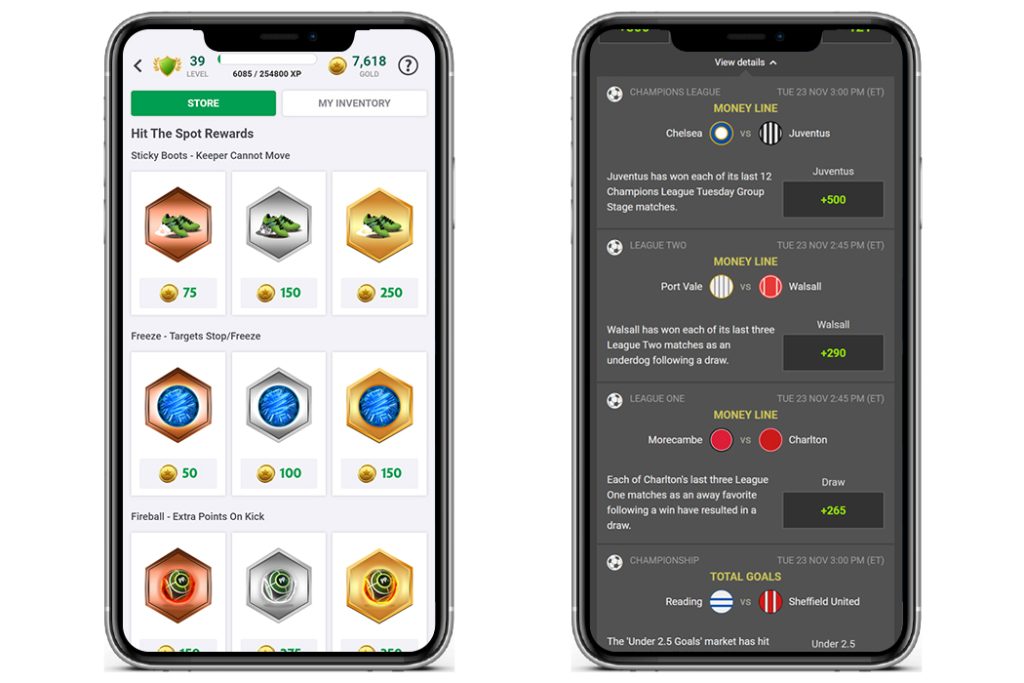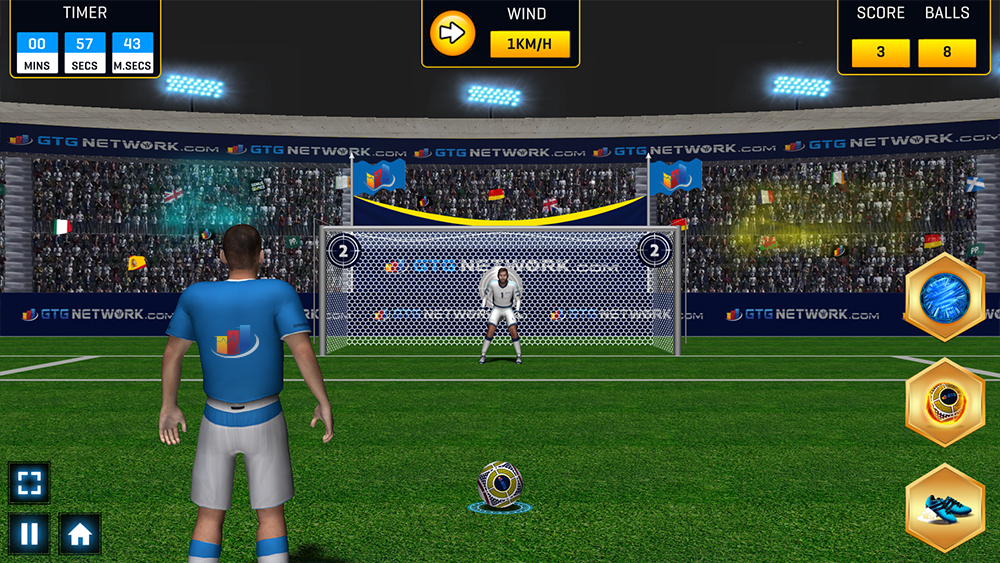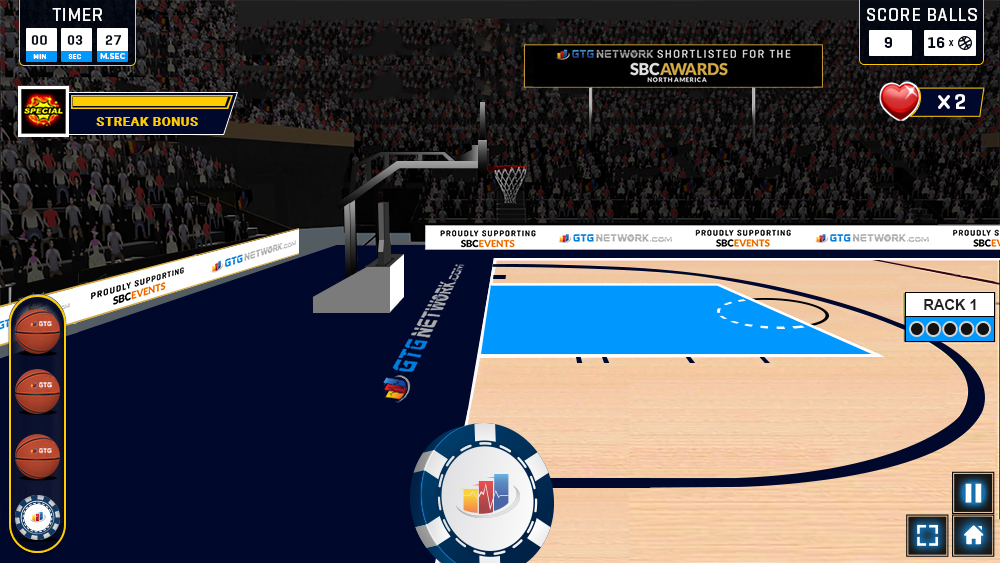“We Produce A Lot Of Content Automatically, 20,000 Facts Per Sporting Event.”
November 23, 2021
Nathan Rothschild, Co-Founder and Partner of GTG Network, talks to iSportConnect about the wide-ranging GTG business, expanding from iSportGenius and how sports fans and their craving for data has been continuing to grow.
Tell us about the background of GTG Network and how the business got started?
We started out nearly nine years ago, initially giving out a range of content on social media. And then the people who followed us started messaging us saying they wanted data, particularly sports data and insights related to tips. Initially this wasn’t what we did, so we slightly deflected that until so many people started messaging us that the demand couldn’t be ignored.
Our three co-founders have all got an interest in various parts of wagering. I played a bit of online poker back in the day and did a Bachelor of Commerce and Bachelor of Science, majoring in maths and stats in Melbourne Uni, so I understand wagering and data while Jared and Brett, the other co-founders, also played some poker but we’re particularly into the sports betting side of things and really understand it from a digital perspective.
People were coming to us in 2013 saying that the way sports data was provided was fragmented and poorly presented, the user experience and interface was very poor, and it wasn’t insightful. We went out to the market, got funding, and spent 2014 and 2015 building the initial version of our sports data platform called iSportGenius and did our first major deal with Ladbrokes Australia at the end of 2015.
“People often want to express their newfound knowledge without necessarily risking money. It was really important to us that we’d cater to this group as we want to engage as many fans as we can.”
From there we found that we were creating far more informed consumers, sports bettors and sports fans as a result of our content. We’ve now got an impressive cohort of sports betting clients, the biggest guys in the biggest regulated markets: such as DraftKings in the US, Barstool Sportsbook in the US, we work with Flutter Entertainment, their Australian operation Sportsbet is a hugely dominant domestic player.
Outside of that, people often want to express their newfound knowledge without necessarily risking money. It was really important to us that we’d cater to this group as we want to engage as many fans as we can. We built a suite of free to play prediction games and developed proprietary tech where we can run games across anything that will have a result, whether it’s who will win NFL games, how many threes Steph Curry will make in an NBA game or how many hot dogs will be eaten at the next world championship. We ran Big Game Squares with DraftKings which is almost a bingo style sports game. It’s a really cultural game in the USA and this year we had 494,000 users play that game for a single event with 100% uptime, so we’ve built tech that operates on a really significant scale.
Then the last division is arcade games, that’s been a huge focus. We’re focusing on games that are very simple to play. Our games can operate independently or we can wrap them into what we call the skill zone, which is really a social gaming ecosystem, with experience points, virtual currency and levels. They’re really the three core divisions of GTG, our business model was not to try and have 10,000 clients, but to work more closely with a smaller number of clients who are leaders in their sector, and where everything we deliver is centred around user engagement.
From when you started iSportGenius, how much data is more easily available, or has become available, to you now? Sports leagues appear much more willing to share it, so how much has that evolved?
It’s certainly increased and that is a result of sports fans demanding data as part of their relationship with sport. Particularly in the US, although in most parts around the world too, data is really central to that relationship. Watch the ESPN broadcast now and compare that to ten years ago, look at all the numbers that are overlaid on the broadcast. That’s huge, because it gives real insight into what’s going on.

We feel like we’re in the right place, right time. We produce a lot of content automatically, 20,000 facts per sporting event. While all 20,000 might not be interesting, our top rated facts are pretty crazy! It’s not the niche sports follower that wants the stats like 20 years ago, sports data is now mainstream as it relates to fans consuming sport. We’ve also recently leveraged this massive amount of insight we generate to create fully automated, feature length articles.
As you say, fans were demanding it particularly in the US for fantasy sports previously, but do you think there has always been a huge gap between what fans think they know and the data that is out there, and you’re now helping to bridge the gap?
At the start of the chat I mentioned that sports data was fragmented and that there’d be pockets of statistics but it was difficult to access the things you really wanted. We were able to centralise that, make it accessible and very easy to understand. You look at an example of what we deliver, a stats hub product for DraftKings, there is so much content across all the major sports it’s now packed into a single destination inside this huge sportsbook in the US.
“Our offering is mainstream now, not niche, where we’re not just servicing the long tail, we’re servicing the belly of the distribution and the long tail as well.”
So we’re realising that vision of eight years ago and delivering it to consumers. There’s a really clear value proposition there for DraftKings and any of our clients, because as they give better content to their customers, all of a sudden they’re a more appealing destination than their competitors and that’s a pretty good reason to engage with us. Our offering is mainstream now, not niche, where we’re not just servicing the long tail, we’re servicing the belly of the distribution and the long tail as well.
You’ve mentioned prediction games, do you think options like that have been for fan engagement with the many people who don’t want to gamble, but also for sponsors to interact with?
Prediction games are a really good way to engage sports fans, and the word gamification is thrown around a lot with very different views of that specific word, but with the ability to have fans express their opinion around sporting events, you are generating engagement and building a relationship.
Words like relationship and engagement are key, whether you’re a sportsbook, a sports media company, a team, a league, or anyone else in the sports ecosystem, you want to be generating additional engagement with your customers, fans and followers.

Our value proposition is we will improve the relationship that you have with your fans or users. We can use gamification to educate across all different things, whether it’s trivia or just getting people more familiar with certain aspects of the game, the underlying sporting event. We are unique in that we have our proprietary stats engine and we leverage that as well, even with our gamification products, to provide unique solutions.
The arcade game side we have is also interesting because when COVID hit last year there wasn’t a lot you could do by way of prediction games, not much was happening. But big brands still have huge numbers of customers and they need to maintain that relationship. We were able to come in and the fact we were already quite mature as a business at that stage, with quite a beefy product suite, we could pivot and say ‘we’ve got a solution not beholden to sporting events taking place, let’s focus on that instead.’
What do you think the role of those arcade games can be in a world where sport is back to normal and what role can it play for those organisations?
It’s a really good question and something we are placing a lot of focus on at the moment. Ultimately what our arcade games do is get people coming to digital destinations. If you look at the skill zone with Paddy Power, what we’re doing is getting lots of people to engage with the product.
“We can cater to a very specific need; the client might be an energy drink company, what can happen there is instead of shooting basketballs into a hoop, you shoot cans of energy drink.”
There’s quite a significant opportunity for advertising within these games, but the ability to drive additional traffic to a digital destination and also create new monetisation streams, that’s where I see the role of our arcade games.
Why do you think that gamification, whether it be progressing through levels or getting rewards, is such a useful tool for sports particularly?
The progression offered inside the games is interesting. It allows for the creation of a highly sticky environment with huge numbers on the retention side of things. The rewards and the levels, there is natural incentive for users to come back and play each day, and we have developed specific features to realise optimise this side of things.
And it’s not just the levels you progress through or virtual currency inside the game, but the ability to deliver a highly customised experience in the game.

We can cater to a very specific need; the client might be an energy drink company, what can happen there is instead of shooting basketballs into a hoop, you shoot cans of energy drink. We’ve got a team of 3D engineers that will model these objects. And that is really just the first layer of what we can do. It just goes a lot deeper than basic logo placement, brands are looking to have a really bespoke level of engagement with their fans beyond just a standard game. That’s where we come in, having product placement and education as a core element of the gameplay. With our tech being so flexible, we can place either an individual game or an entire gaming ecosystem inside our client’s own digital platforms, which drives a significant uplift in the metrics around usage of these assets.
How do you see the data industry that you’re working with, from the iSportGenius side, continuing to adapt and evolve?
It’s actually a really good time to ask that question, because I mentioned that we produce 20,000 facts per event and that’s automated. We’re now producing entirely automated feature length articles of 500+ words, which is the result of a heap of work over a number of years.
“That’s underpinned, not just by robotic type words strung together, but by the most interesting insights in sport as it relates to data and the fact we can then expand that out into a journalistic solution, that’s a huge part of the future.”
That’s underpinned, not just by robotic type words strung together, but by the most interesting insights in sport as it relates to data and the fact we can then expand that out into a journalistic solution, that’s a huge part of the future. We’re only just launching that now, and there’s a lot of opportunity around automated content.
The ability to produce massive amounts of automated information that is interesting to read, while still sticking to that core objective, that original objective of ours to engage fans with genuine insight, well, we’ve come full circle.



